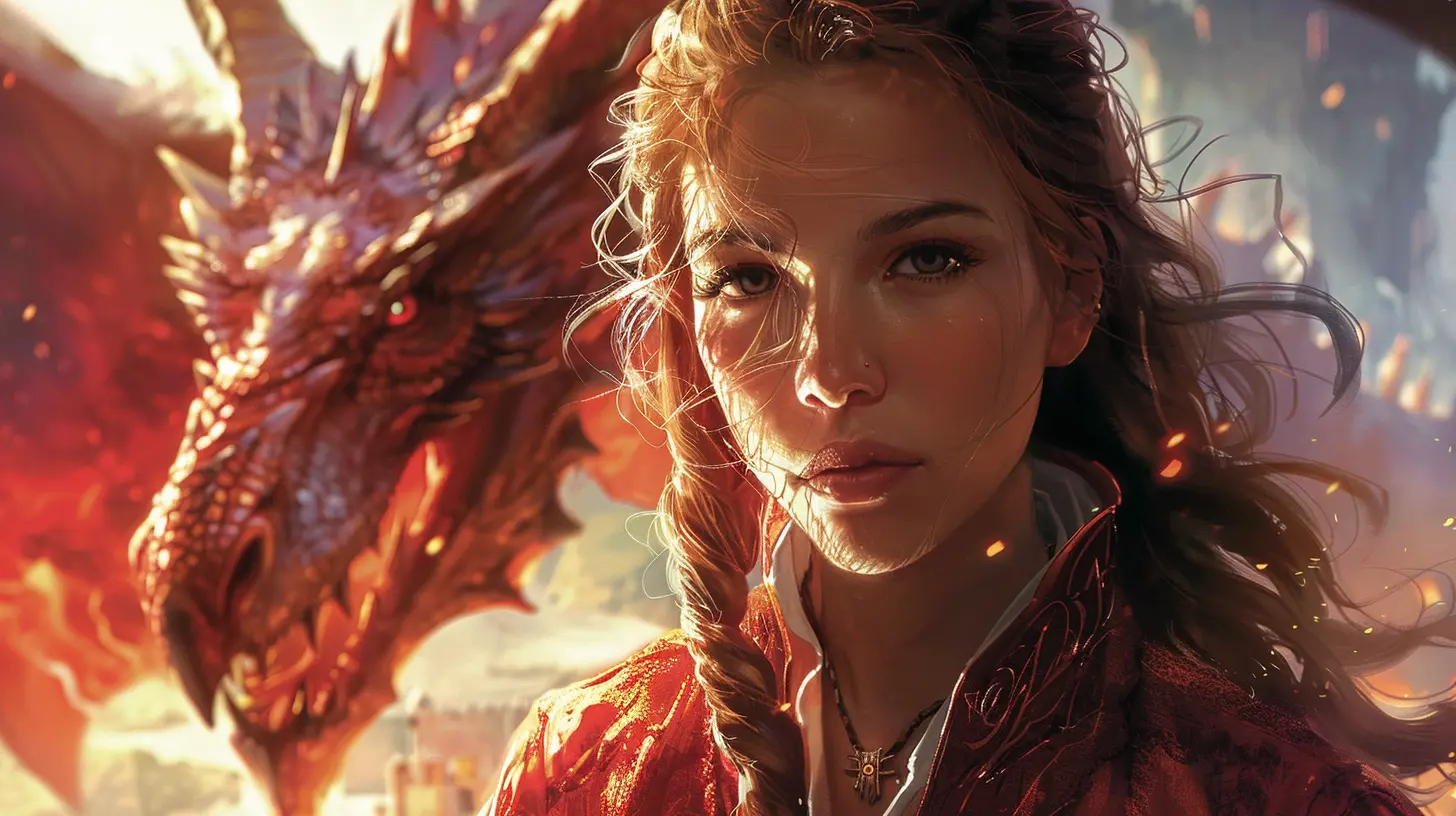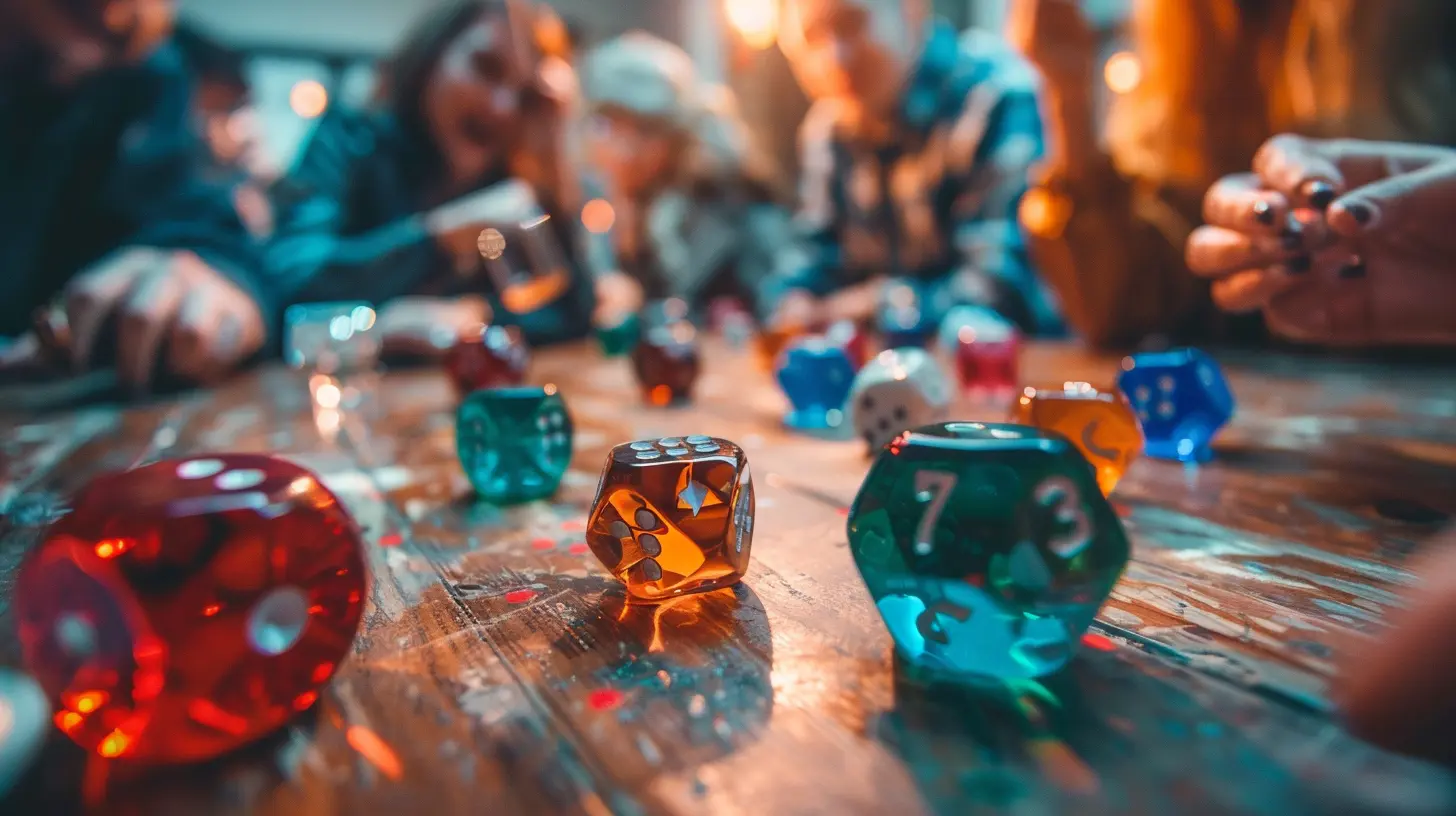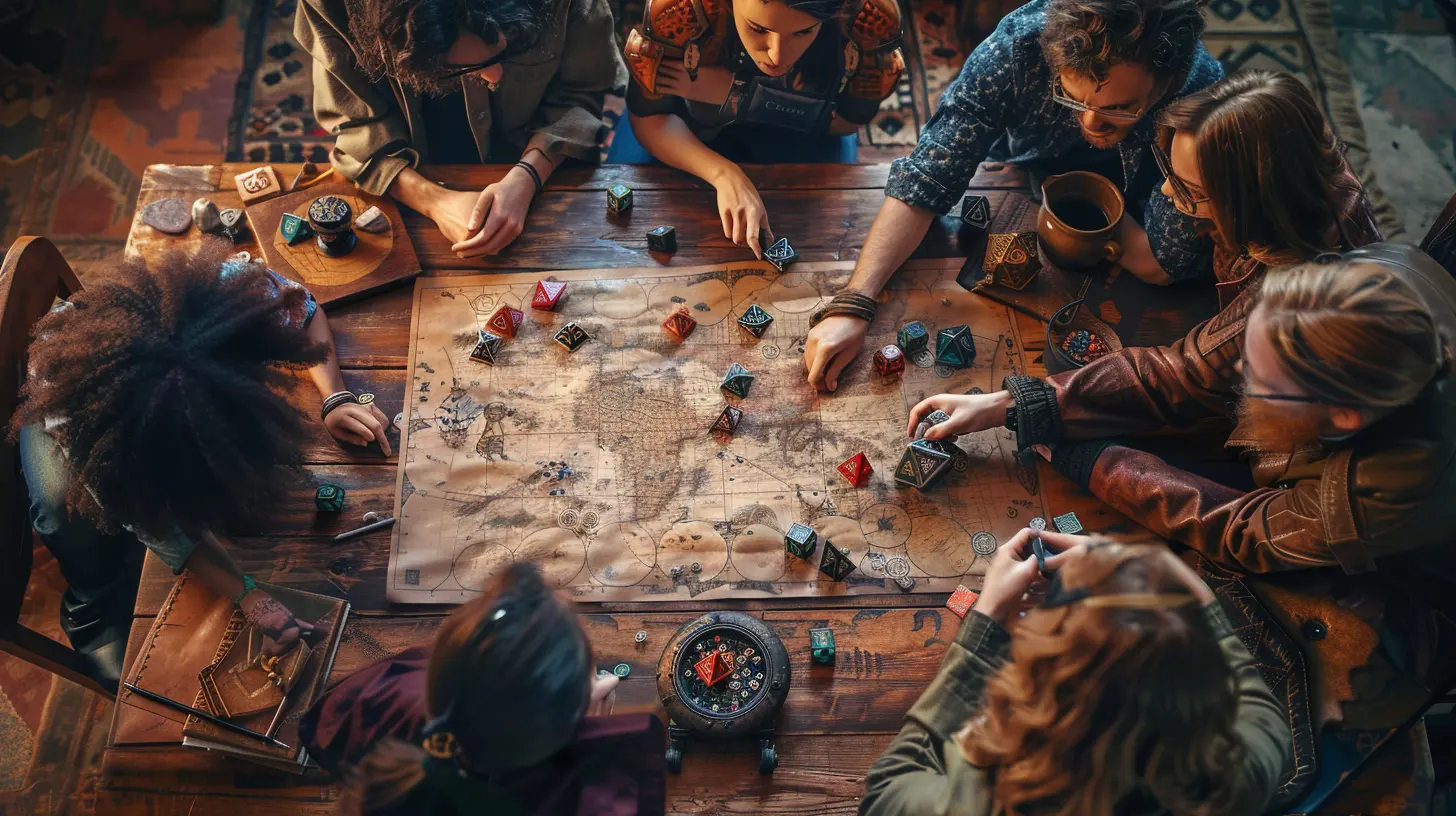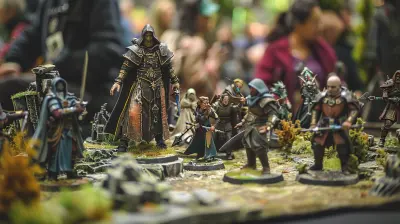Debunking Myths About Role-Playing Games (RPGs)
30 August 2025
Role-playing games, or RPGs as they're affectionately known, have had their fair share of misconceptions over the years. For some reason, these immersive, story-driven games have been surrounded by an aura of misunderstanding, often fueled by stereotypes or a lack of exposure. But let's face it—if you've ever played an RPG or watched someone else dive into one, you'd know that they’re as much about creativity and fun as they are about escapism. So, grab your sword, staff, or game controller because we’re about to take a deep dive into some of the most common myths about RPGs and bust them wide open. Spoiler: RPGs aren’t the "nerd-only" domain they’re often made out to be.
Myth #1: "RPGs Are Just for Nerds"
Let’s get this out of the way right now. You’ve probably heard people equate RPGs with basement-dwelling geeks rolling dice and arguing about elf stats. But, hold up—why does enjoying something imaginative make someone a nerd? RPGs have come a long way since the days of strictly pen-and-paper Dungeons & Dragons (though that still rocks). Today, RPGs are so diverse that everyone from casual gamers to hardcore enthusiasts can find something to enjoy.Big-budget titles like The Witcher 3, Elden Ring, and Final Fantasy XVI have captivated millions of players worldwide. And the audience? It’s as diverse as it gets. Athletes, artists, parents, kids—you name it. RPGs allow people from all walks of life to escape into mesmerizing worlds, make meaningful choices, and engage in epic storytelling. So, the next time someone calls RPGs “nerd stuff,” ask them if they’ve heard of Skyrim—one of the highest-grossing games of all time.
Myth #2: "RPGs Are Way Too Complicated"
It’s easy to see where this myth comes from. Yes, some RPGs have intricate mechanics, sprawling maps, and long rulebooks (looking at you, Pathfinder). But here's the truth: RPGs don’t have to feel like homework. In fact, modern RPGs are designed to cater to different player preferences, ranging from the ultra-simplified to the gloriously complex.If you’re someone who doesn’t want to fuss with stats and spreadsheets, there are "action RPGs" like Diablo 4 or Horizon Zero Dawn that focus more on combat and exploration over micromanagement. Newer games are even more accessible, with tutorials, adjustable difficulty settings, and intuitive interfaces to ease you in.
And let’s not forget about tabletop RPGs. While they can seem overwhelming at first (all those dice rolls!), they’re really just structured ways to tell stories and have fun. Many players skip over super-detailed rules in favor of what works for their group. It’s not about doing everything “right”—it’s about having a great time and letting your creativity shine.
Myth #3: "RPGs Promote Violence or Bad Behavior"
Ah, the age-old argument: video games are corrupting our youth. RPGs, in particular, get targeted because they often involve combat or “questionable” choices in their narratives. But honestly? That’s a pretty one-sided take. If anything, RPGs teach some surprisingly useful life skills.Consider this: RPGs often encourage critical thinking, collaboration, and problem-solving. Whether you’re strategizing how to take down a dragon or negotiating with an NPC (non-playable character) to avoid a fight, you’re practicing decision-making. Many games also explore moral dilemmas—forcing players to think deeply about their actions and their consequences.
And the violence argument? Sure, RPGs can feature battles, but they’re almost always framed within a larger context, like saving a world, defending innocents, or surviving against overwhelming odds. That’s a far cry from mindless violence. Plus, researchers have debunked the link between video games and aggressive behavior time and again. So, if anything, RPGs are more likely to foster empathy and cooperation than chaos.
Myth #4: "You Have to Be Creative to Enjoy RPGs"
Okay, let’s talk about creativity for a second. Maybe you’ve heard someone say, “Oh, I can’t play RPGs. I’m just not that creative.” But here’s a big secret—RPGs are designed to inspire creativity in everyone, even if you’re not the “artsy type.”In tabletop RPGs, sure, you might play a wizard weaving complex spells or a rogue sneaking through a dungeon. But you don’t have to be J.R.R. Tolkien to enjoy it! The point is to make choices and react to scenarios, not to write the next great fantasy epic.
Video game RPGs are even more forgiving. They give you pre-built worlds, characters, and quests to explore, so you don’t have to come up with everything on your own. Games like Mass Effect let you choose dialogue options to shape your story, while others like Stardew Valley let you relax and live your virtual best life as a farmer. Whether you want to stretch your imagination or just follow along with a compelling narrative, there’s something for everyone.
Myth #5: "Only Extroverts or Gamers with Groups Can Play RPGs"
While RPGs often involve socializing, especially in tabletop formats, that doesn’t mean introverts or solo players are left out. In fact, many RPGs cater specifically to those who prefer a solo experience. Open-world games like Elden Ring and Breath of the Wild immerse you in massive worlds where you can play at your own pace, completely on your terms.Even tabletop RPGs don’t always require a group. Did you know there are solo RPGs like Ironsworn that allow you to go on epic adventures all by yourself? Plus, online tools like Roll20 have made it possible for even the shyest players to find a community or group to join without the pressure of in-person interaction. There are countless forums and discord servers where beginners can hop in and learn the ropes with welcoming players.
So, whether you’re the life of the party or prefer your own company, there’s an RPG experience tailored for you.
Myth #6: "RPGs Are Just About Escapism"
Sure, RPGs are amazing for escaping reality for a bit, but to say that’s all they’re about is selling them short. At their core, they’re about creating and experiencing compelling stories. Think about it: books and movies allow us to step into someone else’s world for a while—RPGs do the same, only with added interaction.Many RPGs tackle deep, thought-provoking themes like love, loss, morality, identity, and even societal issues. Games like The Last of Us and Undertale stay with players long after the credits roll because they explore what it means to be human in profound ways. Escapism might get you through the door, but storytelling is what keeps you coming back.
Myth #7: "RPGs Are Dying Out"
This one couldn’t be further from the truth. If anything, RPGs are more popular than ever. The rise of indie games has brought unique RPG experiences to the forefront, while major studios continue to push the boundaries of what RPGs can do. Just look at the massive hype surrounding games like Baldur’s Gate 3 or Starfield. And tabletop RPGs? They’re experiencing a renaissance.Platforms like Twitch and YouTube have introduced millions to games through live streams and “actual play” series like Critical Role. These shows have taken role-playing and storytelling to mainstream audiences, proving that RPGs aren’t going anywhere. If anything, they’re evolving and becoming more accessible.
Final Thoughts: Throwing Those Myths Out the Window
At the end of the day, RPGs are about one thing: having fun. Whether you’re rolling dice with friends or embarking on a solo quest, RPGs let you explore worlds, tell stories, and live out adventures that are only limited by your imagination. Don’t let outdated myths keep you from diving headfirst into the genre. Whether you’re a seasoned gamer or a curious newbie, there’s a magical experience waiting for you in the world of RPGs.all images in this post were generated using AI tools
Category:
Tabletop GamesAuthor:

Lana Johnson
Discussion
rate this article
1 comments
Sybil Jenkins
RPGs: Where dragons exist, but laundry waits!
September 12, 2025 at 3:06 PM

Lana Johnson
Absolutely! RPGs blend adventure with reality—dragons may roam, but so do chores!


